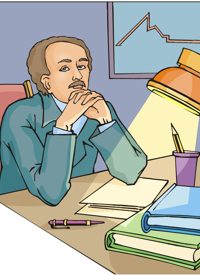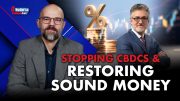
Over 80 percent of the economists surveyed by the National Association for Business Economics believe that America’s worst recession since the Great Depression has come to an end and a slow recovery has begun.
“The great recession is over,” declared NABE President-elect Lynn Reaser, chief economist at Point Loma Nazarene University, in conjunction with the release of the survey results on October 12. “The survey found that the vast majority of business economists believe that the recession has ended but that the economic recovery is likely to be more moderate than those typically experienced following steep declines.”
Forty-four economists took part in the survey in September. They expect the gross domestic product to grow 2.9 percent in the last half of this year, ending four straight quarters of decline. In 2010, they forecast a three-percent expansion.
However, the federal deficit is also growing and employers will likely be careful about hiring new employees. Thus the survey results put unemployment at 10 percent in the first quarter of 2010, eventually falling to 9.5 percent by that year’s end. Currently, official unemployment is at 9.8 percent, the highest it has been in 26 years. (Adjusted unemployment numbers that take into account Americans who have quit looking for work and those who took low-paid, part-time work would be in the area of 17 percent.)
The forecasters are looking for a housing recovery in 2010; this would be the first time since 2005 that the housing sector would contribute to economic growth. They predict home prices to rise two percent next year, but don’t foresee that negating the recovery.
Regarding interest rates and inflation, the economists surveyed don’t think the Fed will raise its benchmark rate until late next spring, eventually pushing it to one percent by the close of 2010. Reaser commented: “The good news is that this deep and long recession appears to be over, and with improving credit markets, the U.S. economy can return to solid growth next year without worry about rising inflation.”
The economists in the NABE survey may not be factoring in the effect of the federal government’s stimulus spending coming to an end. As stimulus spending comes to an end and that bubble pops, the economy could further deflate and lead to even higher unemployment.
Also, inflation is actually a devaluation of the dollar caused by the Fed expanding the number of dollars in circulation. If the Fed cranks up the printing presses to continue financing excessive government spending, that could throw off the survey predictions, especially as U.S. debt burgeons, rising taxes make it more difficult for businesses to compete internationally, and confidence in the dollar drops worldwide.
In any case, the measure of gross domestic product will be key to declaring the recession officially over. Until that figure becomes available, the NABE survey is just educated guesswork.
Hopefully, though, the economists will be on target, and the current record-setting recession can begin to recede into the past.



